News
Major Shake-Up in Sports Governance: New 2025 Regulations Reform National Sports Bodies in Sri Lanka
In a significant move to overhaul the country’s sports governance, the Ministry of Youth Affairs and Sports has officially replaced the National Sports Associations Regulations No. 01 of 2024 with a stricter and more transparent version titled National Sports Associations Regulations No. 01 of 2025, gazetted on May 21.
The 2025 regulations promise enhanced transparency, accountability, and integrity in Sri Lanka’s sports administration. Here’s a breakdown of the most notable changes:
1. Probation Period for New Federations
Under the 2025 regulations:
- New sports associations will be registered on a 2-year probationary basis, only gaining full registration if they show activity in at least 7 districts.
- The 2024 rules allowed immediate full registration with just documentation and a Rs. 50,000 fee. The new regulations reduce the fee to Rs. 30,000, but require a presence in at least 3 districts at registration, with expansion to 7 for permanent status.
2. New Eligibility Criteria for Executive Committees
- Professional Qualifications Introduced: For key posts like Treasurer, candidates must now be Chartered Accountants or hold degrees in management or commerce.
- For other executive roles, candidates must have either represented Sri Lanka or placed at recognized national-level events or have 15 years in relevant professions (law, medicine, sports science, engineering, accounting).
This marks a shift from the 2024 rules, which mainly emphasized finance-related qualifications but lacked performance or academic requirements.
3. Term Limits Tightened
- Previously, individuals could serve up to 16 years (with 8 years max for roles like President/Secretary). Now, the limit is 12 years across all roles—whether continuously or intermittently.
- Importantly, interim committee service is now counted toward this limit, preventing career-long occupation of executive positions.
4. Disqualification Criteria Expanded
The 2025 law significantly strengthens the integrity standards for sports administrators by expanding the disqualification criteria. Key additions and clarifications include:
- Convictions under Amended Sports Law or Prevention of Offences Relating to Sports Act: Anyone found guilty under these updated laws is automatically disqualified.
- Misconduct Proven by Sports Authorities: Any individual found guilty of financial misconduct, corruption, or disciplinary offences by a formal committee appointed by the Minister, Ministry of Sports, or Department of Sports Development will be disqualified.
- Criminal Convictions: Any person convicted of money laundering, bribery, or corruption and sentenced to 6 months or more.
- Media Conflicts: Former journalists, media owners, or key shareholders are barred if involved within the past two years.
- Relatives of National Athletes: Spouses, parents, and siblings of national pool athletes are disqualified.
- Involvement in Betting, Match-Fixing, or Human Trafficking
- Failure to Return from International Duty: Individuals who absconded while representing Sri Lanka are barred.
- Politicians Disqualified: Current MPs, Provincial Council members, and Local Government representatives are ineligible.
- This overhaul reflects a zero-tolerance policy on corruption, conflict of interest, and unprofessional conduct in Sri Lankan sports governance.
The 2024 law also had disqualifications, but 2025’s list is clearer, stricter, and more enforceable.
5. Stricter Election & Voting Rules
- Voting rights are tied to active participation in national events. Associations failing to attend three consecutive meetings lose voting privileges.
- All AGM documentation must be sent 14 days in advance to all affiliates (reduced from 21 days in 2024).
- New members cannot vote in the AGM where they were admitted—ensuring stability.
6. More Transparency in Selections
- All selection trials and criteria must be published 28 days in advance and informed to athletes 14 days prior.
- Final selection results must be published online.
- Trials conducted at the personal discretion of officials or coaches can be invalidated.
7. New Emphasis on Local Development
- National Associations are now mandated to:
- Promote the sport in every province
- Maintain monthly meetings (with school reps present)
- Submit a 5-year strategic plan
- Develop regional, district and provincial structures in all GN divisions
This is a substantial shift from the previous framework which focused more on organizational formalities than grassroots development.
8. International Participation Regulated
- Only athletes approved by the Sports Minister after going through the selection, fitness, and medical vetting can use “Sri Lanka” or national colours abroad.
- Unauthorized representation may result in a 10-year suspension.
Editorial Insight
The 2025 regulations represent a paradigm shift—from a loosely monitored setup to a system that rewards merit, ensures compliance, and is prepared to discipline violators. It’s the boldest attempt in recent years to clean up Sri Lanka’s sports governance, aligning it more closely with international standards and public expectations.
Cricket
Colombo Set for High-Voltage India–Pakistan Night Battle
ICC Men’s T20 Cricket World Cup
Colombo is preparing for one of cricket’s biggest nights as India and Pakistan meet in a marquee clash of the ICC Men’s T20 Cricket World Cup at the R. Premadasa Stadium on Sunday.
Beyond tactics and statistics, this is a contest built on history and pride. With both teams in form and World Cup ambitions on the line, Sunday night promises a high-quality contest under the Colombo lights.
Cricket
Wanindu Hasaranga Ruled Out of ICC Men’s T20 World Cup 2026 Due to Hamstring Injury
Sri Lanka’s ICC Men’s T20 World Cup 2026 campaign has suffered a massive setback, with star all-rounder Wanindu Hasaranga ruled out of the remainder of the tournament due to a hamstring injury.
Medical scans conducted after Sri Lanka’s opening match against Ireland confirmed that the leg-spinning all-rounder will require several weeks of rehabilitation, effectively ending his participation in the global showpiece event.
Hasaranga, a central figure in Sri Lanka’s T20 plans over the past few years, sustained the injury during the early stages of the tournament. His absence leaves a significant void in both the bowling and lower-middle-order batting departments.
Widely regarded as one of the most dangerous T20 bowlers in world cricket, Hasaranga’s impact in ICC tournaments has been remarkable. With 40 wickets, he currently stands as the second-highest wicket-taker in T20 World Cup history — a statistic that underlines the scale of the blow to the co-hosts.
Beyond the numbers, Hasaranga’s ability to break partnerships in crucial moments and provide quick runs under pressure has made him indispensable to Sri Lanka’s balance in white-ball cricket.
Attention now turns to potential replacements. Leg-spinner Dushan Hemantha is expected to be named as Hasaranga’s replacement, pending official approval from Sri Lanka Cricket and the ICC Event Technical Committee. While Hemantha offers promise and attacking intent, stepping into the shoes of Sri Lanka’s premier match-winner will be a formidable challenge.
As of now, Sri Lanka Cricket is yet to issue a formal statement confirming the squad alteration.
With the tournament still in its early stages, Sri Lanka must now regroup quickly. The onus will fall on the remaining senior bowlers to shoulder added responsibility as the hosts attempt to keep their World Cup ambitions alive without one of their most influential players
Cricket
“I Just Wanted to Score a Few Boundaries” – Kamindu Mendis Stars as Sri Lanka Beat Ireland in T20 World Cup Opener
Sri Lanka’s decision to draft in Kamindu Mendis at the last moment proved inspired, as the all-rounder produced a match-turning knock to guide the hosts to a 20-run victory over Ireland in their opening match of the ICC Men’s T20 World Cup 2026 at the R. Premadasa Stadium on Sunday.
Coming in with Sri Lanka in trouble at 86 for 4, Kamindu counter-attacked with a blistering 44 off just 19 deliveries, striking four boundaries and two sixes to swing momentum firmly in the hosts’ favour. His innings transformed a faltering batting effort into a competitive total of 163.
I just wanted to score a few boundaries and put a partnership with Kusal Mendis
Kusal was outstanding today. He deserves a lot of credit. We wanted someone to bat through the innings.
Kusal Mendis played the anchor role to perfection, remaining unbeaten on a composed half-century and ensuring Sri Lanka batted through their 20 overs — something that looked unlikely during the middle phase of the innings.
Sri Lanka’s bowling unit then delivered a disciplined performance, led by their spin trio of Maheesh Theekshana, Wanindu Hasaranga and Dunith Wellalage, who shared seven wickets to derail Ireland’s chase. Hasaranga claimed three scalps, taking his overall T20 World Cup wicket tally to 40 — second only to Bangladesh’s Shakib Al Hasan (50).
There was a brief scare for Sri Lanka when Hasaranga limped off after his second over, sparking concern over his fitness. However, the skipper returned to complete his spell, easing fears ahead of the remaining group matches.
Ireland showed early promise, with George Dockrell returning impressive figures of 2 for 17 and a solid 49-run partnership between Lorcan Tucker and Harry Tector keeping them in the contest. But once spin was introduced in tandem, the visitors struggled to maintain momentum.
From 105 for 2, Ireland lost wickets in quick succession and were eventually bowled out for 143 in 19.5 overs, with Matheesha Pathirana picking up two wickets in the final over.
They got about 15 runs too many,” admitted Ireland captain Paul Stirling.
We were a bit sloppy in the field and we’ve got plenty of work to do before the next game. Spin is going to play a big role in this tournament, and that’s something we need to adapt to quickly.
Co-hosting the 20-team tournament alongside defending champions India, Sri Lanka could not have asked for a better start. The victory not only earned crucial points but also injected confidence into a campaign that carries high expectations on home soil
-
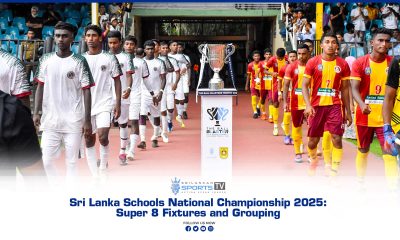
 Football1 year ago
Football1 year agoSri Lanka Schools National Championship 2025: Super 8 Fixtures and Grouping
-

 News1 year ago
News1 year ago2025 Schools Rugby Season Set to Thrill Fans with Knockout and League Action
-

 Cricket9 months ago
Cricket9 months agoNuwan Thushara Shines as RCB Storms into IPL 2025 Final
-

 Live4 years ago
Live4 years agoLive Broadcast of Syria vs Sri Lanka | AFC U23 Asian Championship Qualification
-
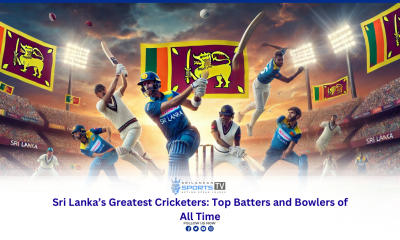
 Cricket1 year ago
Cricket1 year agoSri Lanka’s Greatest Cricketers: Top Batters and Bowlers of All Time
-
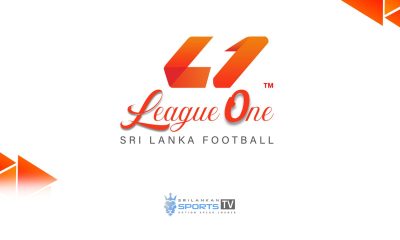
 Football1 year ago
Football1 year agoFFSL Rebrands Division-1 as ‘League-One’ with a Bold New Vision
-
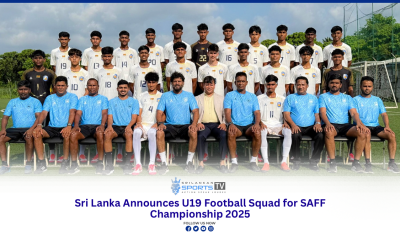
 Football10 months ago
Football10 months agoSri Lanka Announces U19 Football Squad for SAFF Championship 2025
-
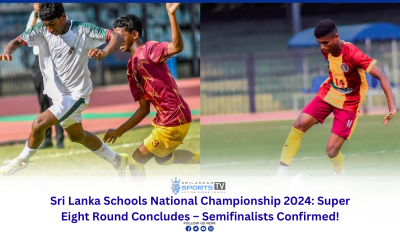
 Football12 months ago
Football12 months agoSri Lanka Schools National Championship 2024: Super Eight Round Concludes – Semifinalists Confirmed!


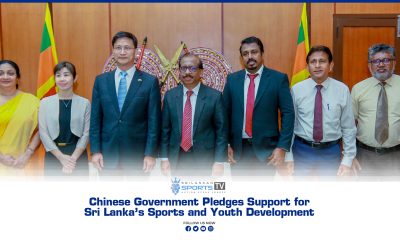









You must be logged in to post a comment Login